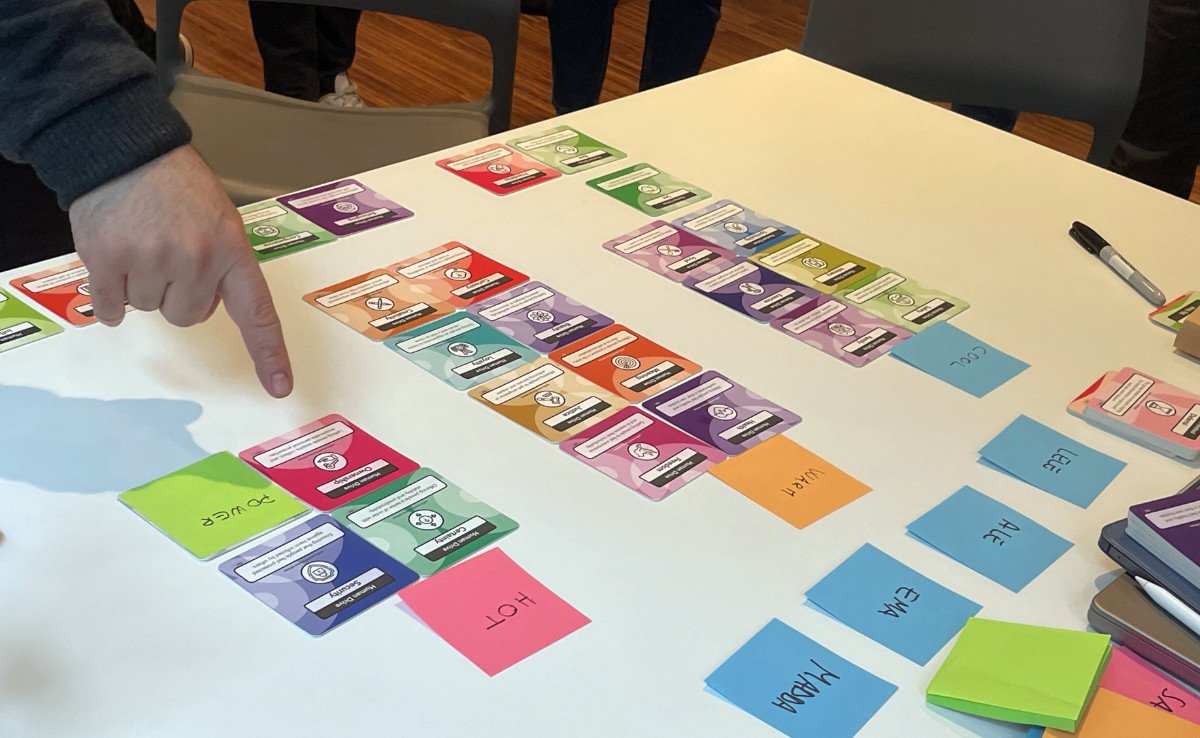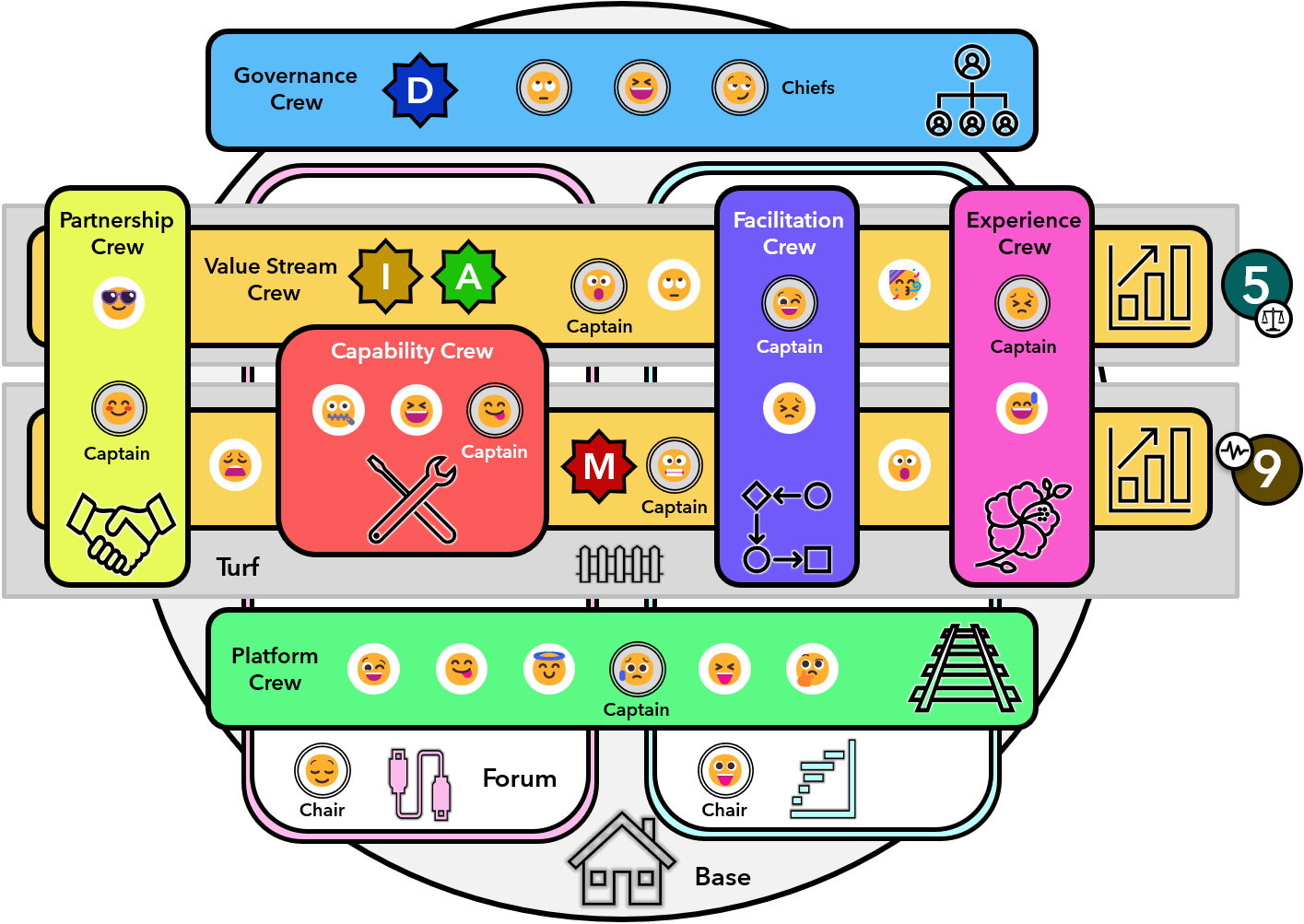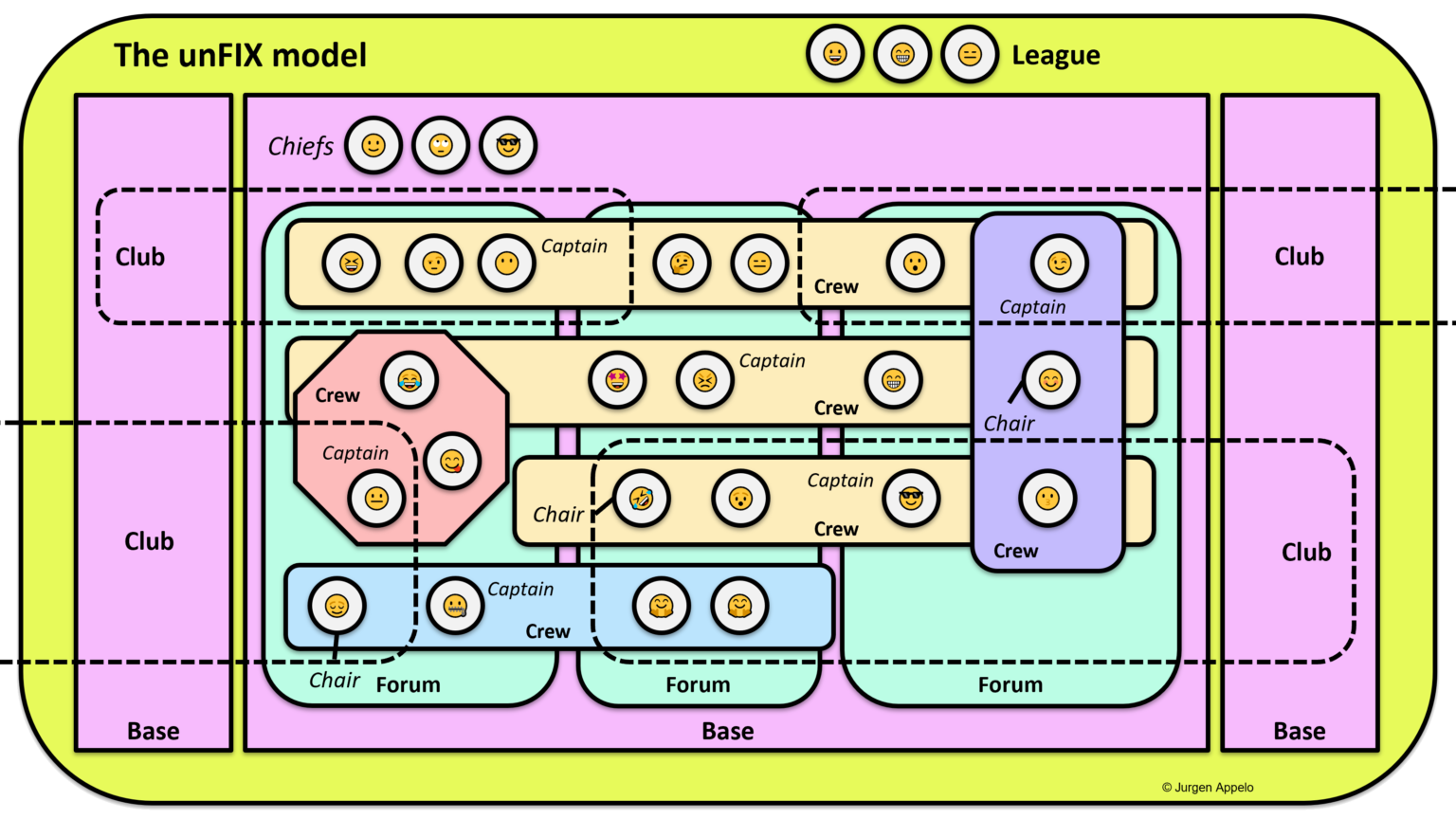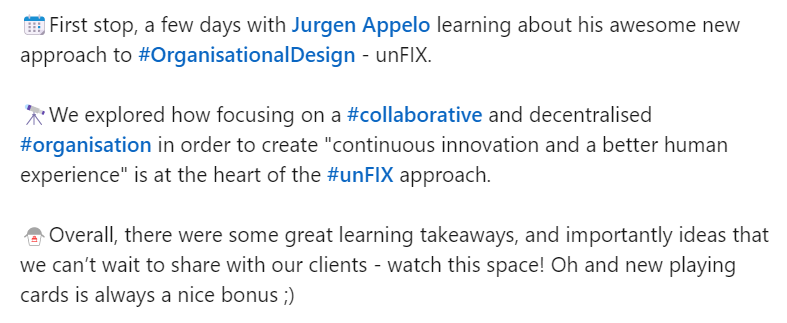
League
Self-Similar Scaling
Purpose
A League is a group of Bases (similar to a Base being a group of people). A League offers a home and a sense of community to the people managing the Bases.
Many companies are more extensive than just one Base. A sense of belonging, recognition, and personal safety are hard to experience among thousands of people. Therefore, it is best to see larger companies as groups (or networks) of Bases. While workers find most of their motivation in one specific Base, there are good reasons for many Bases to work together in a League. (And multiple Leagues can join in a Crowd.)
Looking at things holistically, we can see that many people join large organizations because of the opportunities they see for their careers or the meaning and purpose these organizations offer to their workers. They find their short-term motivation in their Base, but they see long-term opportunities in the larger League or Crowd.
Notes
We use the word League to refer to the large group of people (possibly thousands) who feel they are all part of the same thing, with a shared experience. We use the word Crowd to refer to an even larger scale: a massive group of people (possibly hundreds of thousands).
The League could be the entire company with a few thousand workers. In the case of enterprises of tens or even hundreds of thousands of workers, many leagues (divisions) would form a Crowd. Either way, the League or the Crowd is the large group of people that workers identify with and the group they have chosen to join because of what it could offer to their careers, personal development, and long-term fulfillment.




“Anything you build on a large scale or with intense passion invites chaos.”
(Source: Francis Ford Coppola)














